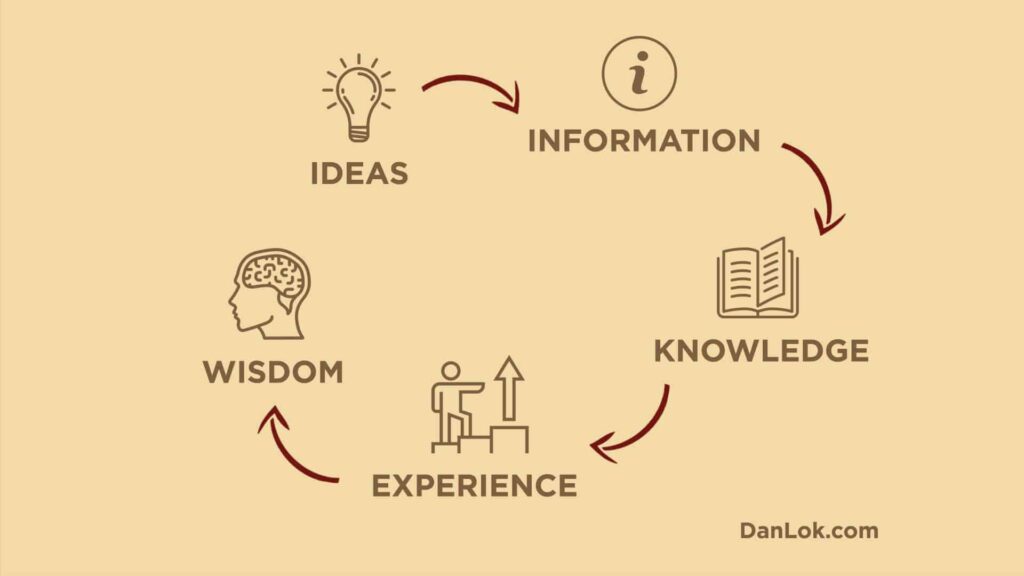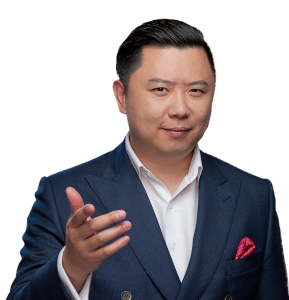Photo credits: Jatuporn Chainiramitkul / Shutterstock.com – Ivan Kurmyshov / Shutterstock.com and Kathy Hutchins / Shutterstock.com
People call him the real-life Tony Stark, one of the greatest entrepreneurs of our time. Elon Musk’s name is synonymous with Tesla and SpaceX, and ranked as the 40th richest person in the world (2019) and 21st on the World’s Most Powerful People (2016). What valuable lessons can we learn from his success?
He has been associated with controversy, but no one is perfect. We’ve all made mistakes. But what’s certain is that he is one of the entrepreneurial geniuses of our time. He knows how to juggle a busy schedule and consistently innovate to launch successful businesses.
If you want to be highly motivated, show great leadership, and persevere as an entrepreneur, then follow these top 9 rules for success from Elon Musk.
Watch this video about Elon Musk’s Top 9 Rules For Success.
Rule 1: High Drive
Ever since he was a little kid, Elon Musk had a really strong, innate drive. By the age of 12, he had already learned programming and sold a video game for $500.
Most successful people are successful because there’s an internal drive or fire they have under the belly. They want to create something great, something that no one’s ever done before. They don’t want to settle for average and they don’t want a 9 to 5 job.
Most importantly, they don’t need to watch motivational videos to be motivated. They are self-motivated. No-one has higher expectations for Elon than Elon Musk himself.
Rule 2: Spend Time Wisely
Elon follows a very specific schedule, spending about half his time on SpaceX and half on Tesla. A normal week would be Monday at SpaceX then Tuesday, Wednesday at Tesla, Thursday and half a Friday at SpaceX and then the remaining half of Friday at the Tesla Design Studio which is adjacent to SpaceX. Then the weekends with his kids.
Elon Musk manages his time very wisely. You have to when you are running two massive companies involved with large projects.
The upside is this: you and I have 24 hours a day, seven days a week, 365 days a year.
You and I have the same amount of time that Elon has. He has the same time resource as you, the same 24 hours a day. It all depends on how you invest your time, and whether or not you use that time wisely.
Rule 3: Persevere
Do you use your time efficiently? That is going to dictate how successful you become. You see, a lot of people look at Elon Musk and what he’s built today but they don’t know that at one time both companies were very close to going out of business.
You see where they are today but the challenges that Elon had to overcome: getting money, growing the business, educating the marketplace aren’t as well known.
When everyone thinks your success rate is so high that you risk losing everything, you need to be persistent. You need to be persistent, even if your first attempt results in failure. Elon was driven because he knows what it is that he wants to do.
You want to ask yourself how bad do you want it? Are you willing to make sacrifices? Are you willing to push forward and persist regardless, even if the whole world thinks that you cannot do it?
Even if they doubt you, you must keep moving forward if you are hungry enough to achieve your goals.
Rule 4: Innovate
Elon Musk believes it’s economics 101. Economics should favor innovation, which is important to protect small to medium-sized companies.
It’s hard for a new company to grow when it’s just a seedling or sapling. It needs a lot more protection than if it’s a giant redwood or fir. That’s why small to medium-sized companies need more protection on the innovation front.
Most people think that being innovative involves creating something new that no one has ever seen on this planet. They want to do something that’s no one’s ever done before, like creating a new technology or invention.
I believe there’s a difference between being inventive and innovative. Inventive is when you have to be creative. You’re inventing a new technology, product, or service – something that no one’s ever done.
However being innovative is something different. I don’t consider myself to be very inventive. But I’m very innovative, meaning I can see what we need in the marketplace and ask myself how I can make that a little bit better.
For example, how can I have a new spin or new way of marketing a product or add a new feature to it? I see there are so many products and services but there’s this gap in between.
There’s this need that’s not being fulfilled. I come up with interesting or different and unusual ideas and approaches to satisfy a need in this particular space. I’m not creating something brand new, just being inventive.
Rule 5: Attract And Motivate Great People
To Elon Musk, the ability to attract and motivate great people is critical to the success of a company because the company is just that: a group of great people that are assembled to create a product or service. That’s the purpose of a company.
Business is a team sport. Now at the beginning of your entrepreneurial career you’re probably doing everything yourself. I was doing everything myself at the start: the bookkeeping, the selling, the fulfillment, meeting with the customers.
I was doing everything a business owner needs to do to keep his business running. However as you grow, Elon Musk is saying that you want to find a group of people who share the same values. You want to share the same vision and accomplish a goal together.
But the key is, how do you attract good people? People come to me and ask me all the time, “How do you build such a great team?” They cannot attract good people and they don’t know why.
I always tell them, chances are if they don’t have good people within their company, they’re a lousy leader. The question is not so much how do you find good people, the question is, “How do you create an organization?”
How do you become a leader that people want to follow? How do you create a team that people want to join? That’s a very big difference. It starts right here, with you, not the marketplace, but right here.
Rule 6: Entrepreneurship Is Not A One Man Endeavor
Entrepreneurship is not a one-man endeavor because with one person, how much leverage can you have? With me, although everything is personal-brand driven, just like Elon Musk, with myself as the visible element and spokesperson for my brand, team Dan Lok is not just Dan Lok.
I played my part, a small part, but the success of the company actually involves a lot of people and partnerships and talents. It’s not just one person, although what you see is me representing the Dan Lok brand. It’s really the people within the organization that makes the company work.
The problem that prevents a lot of entrepreneurs from going to the next level is that they are control freaks. They want to control every aspect of the business.
These entrepreneurs want to micromanage instead of empowering or inspiring their people, and giving them the authority to make decisions and achieve great things.
They want to get their hands in everything and micromanage because they want that control but that actually comes from a lack of self-esteem and lack of trust. If you don’t trust your team, how could you empower them to help you to grow your company? It’s impossible. You cannot work alone if you want to be successful.
Rule 7: Have A High Pain Tolerance
A friend of Elon Musk said that building a company to success is like eating glass and staring into the abyss. The first several months are exciting and then things don’t go as planned. Customers aren’t signing up or the tech isn’t working. It can be painful for years as the company grows.
So if you want to be successful as an entrepreneur, have a high pain tolerance.
Many years ago I had a conversation with my mentor Dan Pena and he asked me the question about the same concept. He asked me, “You know, Dan, what do you think is the number one quality of a successful entrepreneur?”
I said it was having an idea or creating new technology or better pricing. Or it was needing a team or being smart or having a good education. I gave him many answers but he disagreed with them all.
None of those are the most important quality of a successful entrepreneur. The most important quality of a successful entrepreneur is the ability to endure pain for a long period of time which is what Elon Musk is saying.
You have to have high pain tolerance. You see someone who is successful like Elon Musk and you see the glory but you don’t see the blood, sweat, and tears while working for years without any results or recognition.
When you read a business magazine you see the people who make it but you don’t see the millions that lost all their money or the companies that went bankrupt.
You only see the glamour side of entrepreneurship and that’s the problem sometimes with social media. You see the glory but you don’t see the guts. Most people give up too soon. They don’t have that tenacity or high pain tolerance.
The first few months of a business are great. You’ve got a great idea to start with. Then problems kick in with customers or technology or the recession arrives. Either you give up or you persevere.
That’s what makes an entrepreneur successful – having the pain tolerance to deal with stress, anxiety, and rejection. An immunity to pain – that’s the difficult part, I think.
Rule 8: You Don’t Need Traditional Education
Elon Musk believes there are good schools out there, but teachers do not explain why students are being taught a subject. For example, they don’t know why they are being asked to solve problems in math class.
A cognitive dissonance occurs when we are taught to memorize formulas or information that seems to have no relevance to what we do daily, but we memorize it anyway so the teacher doesn’t punish us.
Compare that to taking apart an engine to see how it works and then putting it back together again. To do this task, you will need wrenches and screwdrivers and allen keys. As you solve this problem, you learn about the relevance of all these tools to the assembly of an engine.
So the question is, how practical is a formal education?
It doesn’t guarantee you success in life. People think that if they have that degree after their MBA, then their life is set.
Well that may not be the case. I didn’t graduate from university. I don’t have a lot of formal education but I do have a lot of self education from reading a lot of books and having great mentors. So if you don’t have a formal education it doesn’t mean that you will not succeed.
If anything, now I subscribe to the principle called “in time learning,” meaning you learn something that you can implement right now, not by going to school and learning a subject.
With this type of learning, you ask yourself questions. How am I going to implement this? When am I ever going to use this? What am I learning right now that will get me results?
More importantly, learn more about what is necessary to take your career or business or income to the next level.
Rule 9: Have A Feedback Loop
Elon Musk tried to optimize the productivity of every game day. It’s very important to have a feedback loop where you’re constantly thinking about what you’ve done and how you could be doing it better.
Listen to your customers and prospects. What do they want? What frustrations do they have? Are you listening to and understanding their needs? How can you solve their problems better than anybody else? How I can you fulfil their needs better than your competitors?
That’s what business is about. It’s about understanding what the marketplace wants. Nowadays you can even co-create your product by working with the customers to create something that is for them.
With this approach, your customer will like the product more. They’re more likely to refer other customers and they’ll buy more from you. This is the type of information you want to gather for your feedback loop.
Final Thoughts On Elon Musk’s Top 9 Rules for Success
Elon Musk is an inspiration to entrepreneurs who want to achieve his level of high performance and innovation. Even when he was young, he already had a high drive and a strong desire to persevere.
When you own a business, you must learn to spend your time wisely. You must also learn leadership to attract great people because entrepreneurship isn’t something you can do alone. Traditional education isn’t as important as “in time learning” and having a feedback loop to learn from your customers.
Most importantly, have a high tolerance for pain. If you’re not comfortable with being uncomfortable, you won’t be prepared for the challenges you will face on your path to success.
Which Elon Musk rule do you like the best? Comment below.
Suggested articles:
Jack Ma’s Top 9 Rules For Success | Why You Should Listen To Your Customers
Tony Stark’s Top 9 Rules For Success
The Ultimate Guide To Developing The Millionaire Mindset




